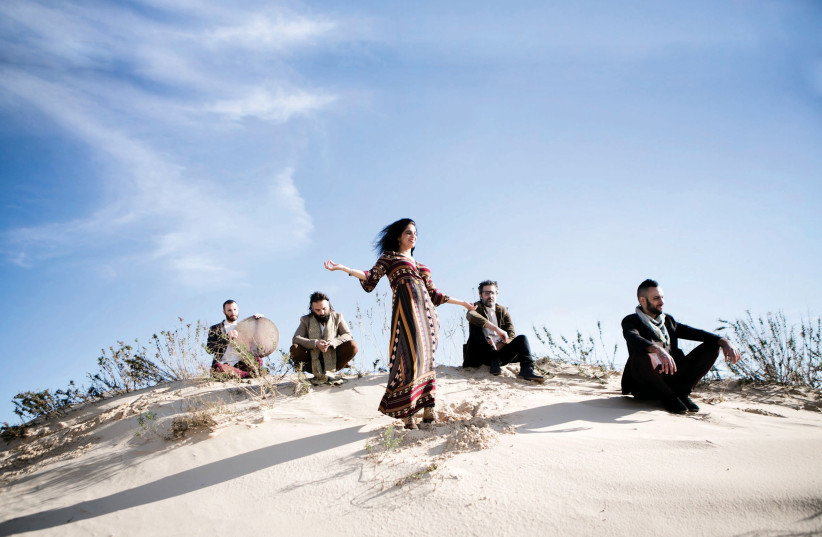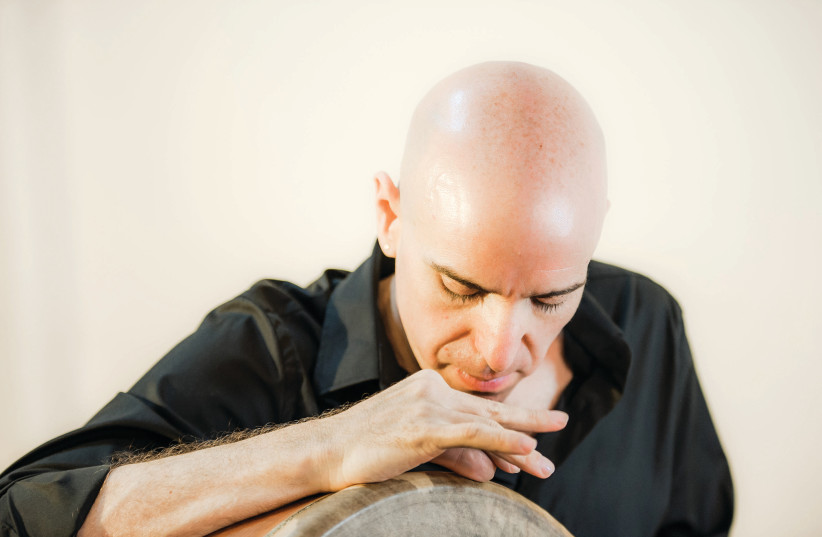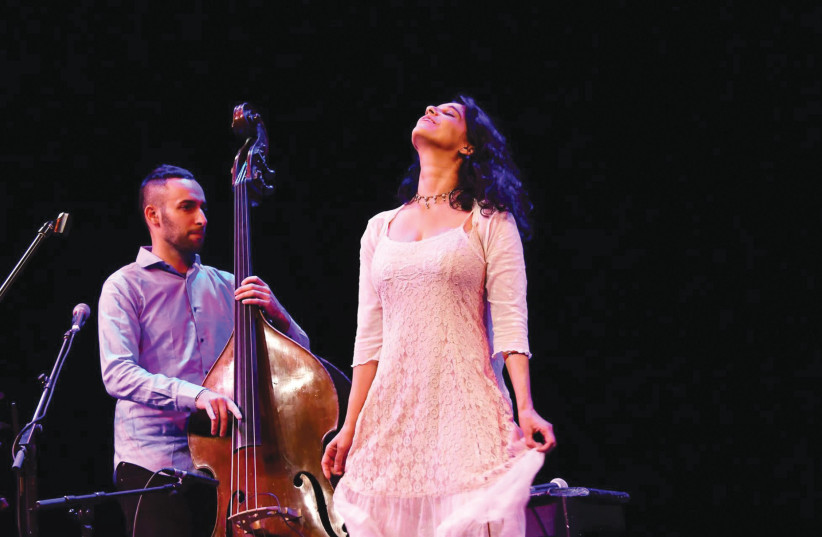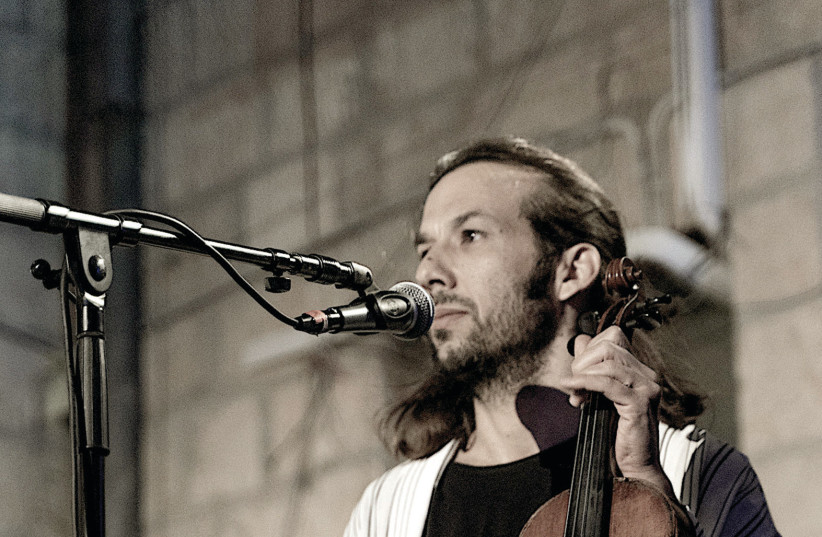One of the worst-kept secrets in this country is that music hath communicative powers that go far beyond cultural demarcation lines and, thankfully, fundamentally divisive political frontiers.
It has oft been said, including – albeit generally sotto voce – even by some politicians and public servants, that our artists, particularly our musicians, provide the best global PR services we could hope for, and certainly do a better job in promoting a positive international image for this country than our well-paid politicians.
If it were up to Music Port, there would be far more Israeli musicians out there, pounding the global beat, and helping to spread the good word that there is a plethora of polished, quality creative vibes to be had from these here parts.
Yes, the Boycott, Divestment and Sanctions lot may want to stick their vituperative oar in at any given moment, but the fact is that, when audiences see our musicians in action, they are swayed not by political considerations but by the quality and entertainment value of the onstage fare. Period.
That credo is very much central to what Music Port is all about. The diminutive organization is a nonprofit that does its damnedest to help our musicians, across a broad sweep of genres and styles, to further their craft. That can take the shape of accessing contact personnel of festivals and cultural bodies around the world, and even simply filling out forms for grants and other kinds of fiscal assistance.
The driving force behind the hand-holding endeavor knows the street-level score. “I come from the practical side of music. I come from the field,” says Talya Solan.
As a veteran musician, and vocalist of the Yamma Ensemble which performs what it calls “traditional and original global Hebrew and Jewish music,” Solan knows the scene from the ground up. That, naturally, includes being intimate with the nitty-gritty and having a willingness to soil her artistic hands with the quotidian but, sadly, indispensable side of the music business.
Music Port is the fruit of those prosaic loins, and was spawned by an experience Solan had on the road.
“I went with a band to the United States in 2010,” she recalls. “It was a whole tour of cities around the Midwest. It was a multiyear commitment.”
That sounds perfect. Any professional musician, particular the unaffiliated lot, would be ecstatic to land a guaranteed gig schedule. However, things quickly turned sour for Solan.

“We found out there that we didn’t get along together,” Solan says, adding that they had been performing together for six years at that point. “It’s like a couple who decide to go on vacation before the wedding and start bickering,” she chuckles. “I realized that I wasn’t going to go through that again. My time with the ensemble was definitely up.”
As with all relationship breakups, there is often challenging fallout to deal with, and it isn’t just a matter of each going their separate ways. “The Americans are very organized and, of course, they wanted me to come back the next year with the same lineup.”
Meanwhile, Solan happily joined forces with bassist Avri Borochov, who is now one of the leading lights on the jazz and ethnic music scene in these parts.
“We hit it off straightaway,” she says.
A new group, which became Yamma, gradually coalesced and, by the time the second Midwest trip came around, Solan et al. were raring to go. “I told the Americans I was coming with a dream team, and they were going to love us.”
The new bunch, which also included Yonnie Dror and a percussionist and guitarist who have since left the band – they were subsequently replaced by multi-instrumentalist, composer and arranger Aviv Bahar and percussionist Nur Bar Goren – duly flew Stateside ready to strut their stuff.
However, the band’s American hosts were not best pleased by the change in personnel. “They had all the material, and graphics, ready with the other names,” Solan explains. “They weren’t very happy.”
Still, the musicians were already there and went on to complete the tour. Fortunately, it turned out to be a case of all’s well that ends well.
“When I got home I received a phone call from one of the American hosts who told me that we weren’t just the best Israeli group they’d had over there, we were the best group – period.”
That was an instructive experience for Solan, and she gained some valuable insight into the machinations of the market and the way things work behind the glittering scenes.

She also wanted to spread the good educational word, for the benefit of her peers. “I felt that I wanted to tell other Israeli musicians about how to deal with such situations, and others. Musicians have to be able to deal with that sort of thing.”
BY 2014, Solan’s hard-earned streetwise nous evolved into Music Port. It is a sorely needed vehicle for freelance musicians who, to put it bluntly, haven’t the foggiest idea about how to get support for their work.
“Musicians frequently find themselves in a position whereby they get an invitation, say, from some festival organizer abroad but don’t have any support from here to make the trip financially viable, or to work in practical terms,” Solan observes.
The paucity of state support for herself and her fellow professionals became clear to Solan during some of her forays on the global gigging circuit. “I’d see, for example, at some festival that I’d be there with a trio, and there’d be groups from Sweden or Germany and other countries with six, maybe seven, members. They had the funding to take over a large group, while we had next to nothing.”
It is, she says, a basic fact of life. “When it comes to, say, ethnic music – you know, any music that is not commercial – it is logical and normal that countries helped their artists.”
That, she says, is particularly important when it comes to cultural exchanges, and offering some added value in the national PR stakes. “That’s the way it works. You take your music abroad, and you are basically representing your country. You are promoting your country’s culture in the best possible way.”
The going was evidently tough, and Solan slipped into toughing-it-out gear, and Music Port came into being. “I began looking for foundations and donors, anyone who could help us.”
She put in her fair share of shifts, and continues to do so, but there have been some rewarding fruits.
To date, the nonprofit has helped the likes of internationally renowned ethnic music percussionist Zohar Fresco and similarly feted bassist Yossi Fine, whose bio includes slots with rock giants such as David Bowie and Lou Reed. Well-known jazz saxophonist Daniel Zamir got help with arranging a concert tour to South Korea, while up-and-coming cellist-composer Mayu Shviru was also the beneficiary of Solan’s guidance in securing a berth in foreign climes.
“I met Talya when I filled in for a member of the Yamma Ensemble who couldn’t make a tour to Poland,” Shviru recalls. “We got talking, and Talya told me about Music Port, and I told her that I was going to Azerbaijan to study the local music, which is called mugham.”

The young cellist was in for a surprise. “Talya told me that, as my trip was considered something educational, I could apply for grants.”
Shviru had already scraped together the wherewithal for that excursion, but when a second residency offer came in from Azerbaijan, she immediately contacted Solan.
“I hadn’t thought for one moment that I could get funding for that,” Shviru notes. “Talya really pushed me to apply for grants, and she and Music Port helped me with all of that, and I was able to spend another month there.”
“All of that,” says Solan is something way beyond the capabilities of your average freelance musician. Understandably, musicians just want to play and write music and record their work. And, even if they aren’t completely witless when it comes to completing forms and hitting the Send button on their email software of choice, the business of obtaining state backing is often a veritable quagmire of officialdom which few, even nonmusicians, have the patience or competence to address.
“As a freelance musician, I thought I’m independent. I’m on my own. There’s no one who can support what I do, because what I do is private,” Shviru adds.
That may be the case, but other countries – particularly Norway and Germany, and the British Council is also pretty active in the field – have long recognized the value of getting their cultural ambassadors out there on the global stage. They often provide artists not only with the means to take their craft abroad but also with the financial underpinning to keep the wolves at bay so they can just focus on their creative pursuits.
THE LACK of state backing for our freelance musicians – and when it comes to the Zohar Frescos and Yossi Fines of our musician community, we are talking pretty well-known names here – is especially puzzling, if not downright infuriating.
That is compounded by the fact that there are official dedicated bodies such as the Culture Administration of the Culture Ministry, and Kashtum – the Foreign Ministry department whose purview includes funding and helping with the logistics of performances abroad by Israeli artists and musical ensembles.
The Kashtum page on the ministry website currently trumpets its support of the Kibbutz Contemporary Dane Company (sic) to take its work around the globe. Ignoring the spelling error in the dance company’s name – one presumes there are not too many kibbutzim in Denmark, and even if there were, why should our ministry support their dance outfits? – the KCDC is clearly a flagship cultural outfit, and in a different financial league compared with Shviru and co.
“There is support for the arts in this country, in some shape or form,” Fresco notes. “It is just allocated in a way that I find hard to comprehend.” I took that as a diplomatically worded understatement. “I know that artists here are considered to be on the very lowest rung, in terms of getting support, and the musicians are at the very bottom of that pile.”

Perhaps, if Fresco, Yamma and their ilk worked in more mainstream marketable climes, they’d have an easier time of it.
“If you spent all your time working in pop music, you’d probably be OK,” says the 52-year-old percussionist. “But that’s not me. We offer the world music from our amazing multicultural society. It is so special. That is the special thing about our country. So why can’t we get help from the state?” Why indeed.
Fine, past A-lister synergies notwithstanding, also feels the need for an official helping hand.
He says he was impressed by Solan and Music Port’s efforts from the start. “When I went to music fairs, like Womex or Jazzahead, Music Port would always have the biggest Israeli stand there. They did so much work for the Israeli musicians, more than the official Israeli state people.”
Neither he nor Fresco had heard of Kashtum let alone received support from it. Neither had Shviru nor jazz- and world music-oriented vocalist Hadar Nehemya.
“The state only helps the famous acts, and the people who really need the support don’t get it,” Fine continues. “If an Israeli group gets invited to play, say, in New York and Los Angeles, they generally won’t be able to pay the domestic airfare. When I realized that was the situation, I just gave up.” More’s the pity.
“Musicians are our best emissaries,” says the bassist. “Music Port works so well. It provides support and creates goodwill. We need more of that.”
Nehemya got on board the Music Port train when Solan asked her if she wanted to be part of the 12 Tribes project, which puts out Israeli music video clips via its YouTube channel.
That had a positive knock-on effect for Nehemya’s career. “I’d just released my debut album, and I’d been so immersed in the music that I hadn’t given much thought to PR and how to promote it. Taking part in 12 Tribes helped to get me out there. That was very important for me.”
Solan feels that, more than anything, what Israel’s cultural sector needs is a body with a comprehensive take on the bigger picture. “Other countries have cultural attachés at their embassies around the world who take care of everything. Here everything is truncated and split up into this area or that area. It all gets lost, and no one takes responsibility for the whole thing, for the macro.”

For its part, the Culture Administration informed me that there is an Independent Artists Fund which issued a Call for Response from artists, across a range of disciplines, to submit grant applications by October 7.
While appreciating the state effort, Solan is not too hopeful that will provide the sought-after results. “I know all sorts of musicians who have not applied because they don’t know how to handle that sort of thing. The state needs to provide funding but also the infrastructure to help artists obtain that support. The thinking has to change.”
The administration also noted that music groups get partial funding for foreign trips, and that the fund budget amounts to “around NIS 7 million a year.”
Solan wasn’t overly impressed with that either. “That budget is divided between artists from all fields, not just musicians. It includes dance.
“The Choreographers Association gets NIS 8.5m. of state funding a year. We don’t get anything. I’m happy for the choreographers, but that’s unfair.”
